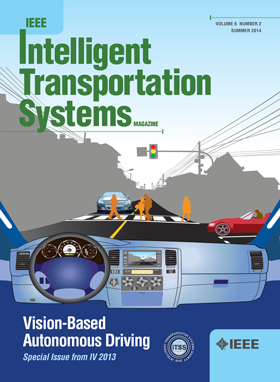Blockchain-Based EV Constant Function Pricer and Oraclized State of Charge Estimator
IF 7.9
1区 工程技术
Q1 ENGINEERING, CIVIL
IEEE Transactions on Intelligent Transportation Systems
Pub Date : 2024-11-07
DOI:10.1109/TITS.2024.3469890
引用次数: 0
Abstract
The increasing adoption of Electric Vehicle (EV) systems necessitates the development of an Energy Market structure that facilitates peer-to-peer energy sharing among multiple EVs and entities while ensuring a self-regulating pricing mechanism. Real-time State of Charge (SoC) estimation is critical to meeting the dynamic energy demands of EV systems. In this study, we propose a blockchain-based automated market maker (AMM) that utilizes constant function products to establish an effective self-regulating pricing system for EV energy market prices. Our unique State of Charge estimation system leverages blockchain-based oracles to efficiently handle requests and monitor EV-oriented energy markets. This enables precise monitoring of battery states and achieves improved SoC values through the interior point method. Experimentation on a blockchain network reveals cost-effective energy regulation within EV systems and enhanced SoC estimation predictability within Energy Markets. All contracts undergo rigorous testing and are deployed at a gas cost of基于区块链的电动汽车恒定函数定价器和开放式充电状态估算器
随着电动汽车(EV)系统的日益普及,有必要建立一个能源市场结构,以促进多个电动汽车和实体之间的点对点能源共享,同时确保自我调节的定价机制。实时充电状态(SoC)估算对于满足电动汽车系统的动态能源需求至关重要。在本研究中,我们提出了一种基于区块链的自动做市商(AMM),利用恒定函数产品为电动汽车能源市场价格建立有效的自我调节定价系统。我们独特的充电状态估算系统利用基于区块链的神谕来有效处理请求并监控面向电动汽车的能源市场。这就实现了对电池状态的精确监控,并通过内点法提高了 SoC 值。在区块链网络上进行的实验表明,电动汽车系统中的能源调节具有成本效益,能源市场中的SoC估算可预测性也得到了增强。所有合约都经过严格测试,部署成本为 2.1913742~x 10^{7}$ Wei。我们的方法在所有设计的协议中都表现出了很高的效率,肯定了我们建议的有效性。通过实施基于区块链的 AMM 和充电状态估算系统,我们确保了电动汽车市场内能源分配和定价的透明性和自律性,促进了自主电动汽车系统的发展。
本文章由计算机程序翻译,如有差异,请以英文原文为准。
求助全文
约1分钟内获得全文
求助全文
来源期刊

IEEE Transactions on Intelligent Transportation Systems
工程技术-工程:电子与电气
CiteScore
14.80
自引率
12.90%
发文量
1872
审稿时长
7.5 months
期刊介绍:
The theoretical, experimental and operational aspects of electrical and electronics engineering and information technologies as applied to Intelligent Transportation Systems (ITS). Intelligent Transportation Systems are defined as those systems utilizing synergistic technologies and systems engineering concepts to develop and improve transportation systems of all kinds. The scope of this interdisciplinary activity includes the promotion, consolidation and coordination of ITS technical activities among IEEE entities, and providing a focus for cooperative activities, both internally and externally.
 求助内容:
求助内容: 应助结果提醒方式:
应助结果提醒方式:


